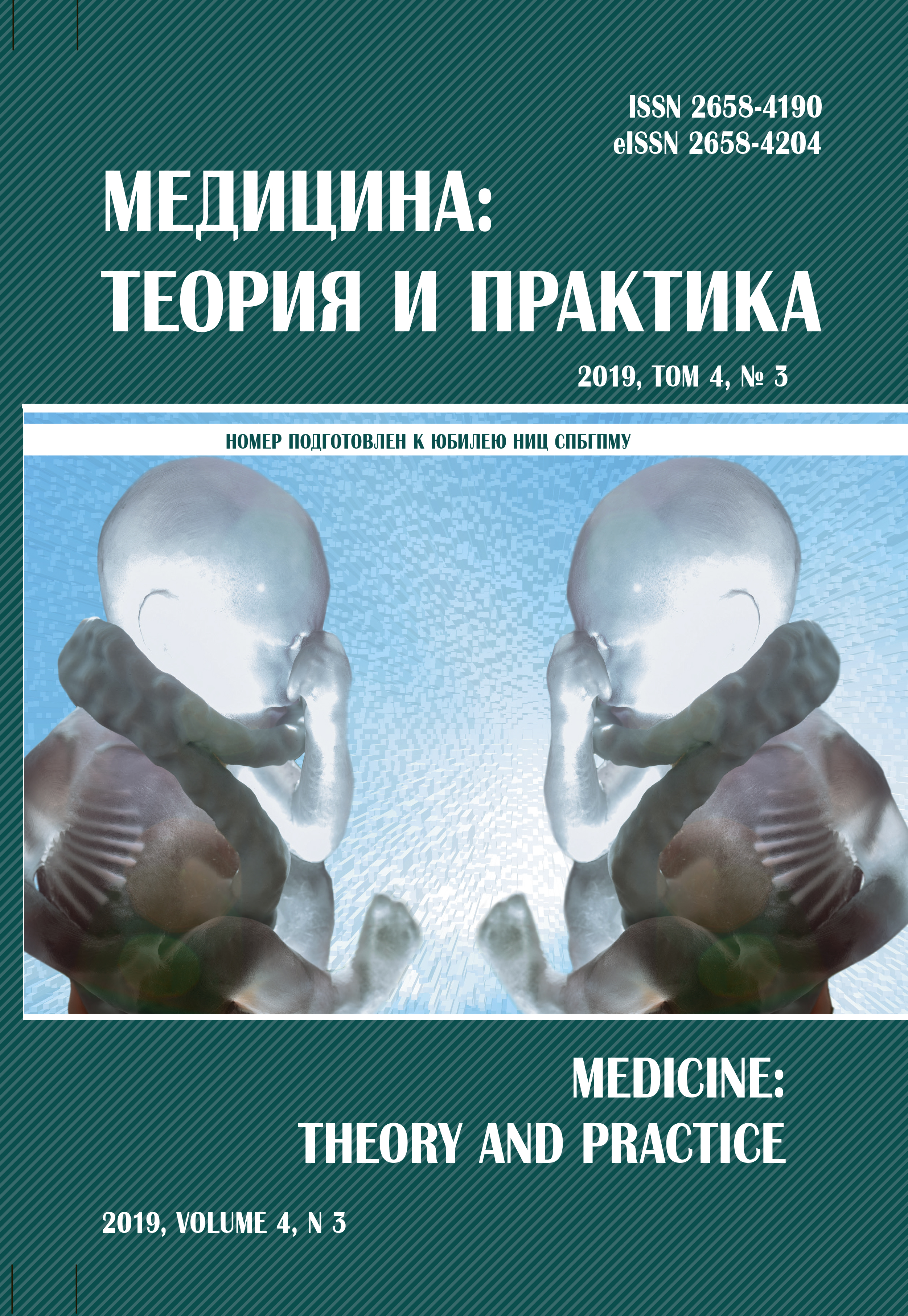Types of eating behavior and quality of life of overweight patients
Abstract
The aim of the study is to assess the types of eating behavior and quality of life of patients who are overweight. Methods: a Russian version of the “Dutch questionnaire of eating behavior” (DEBQ); Russian adapted version of the method “SF-36 health status survey”. Research material. The study involved 58 patients, 36 women and 22 men (χ2=3,379, p=0,066), with body weight of 90.0-205.0 kg in average 136,36±3,632 kg. The mean value of body mass index (BMI) was above 40, which according to WHO recommendations, the same level as very severe obesity. Results. Average values of DEBQ scales (types of eating behavior) in men and women did not differ. When comparing the results of the DEBQ in our sample with validated populational data revealed that our surveyed group were significantly lower than the mean value of the scale “Emotiogenic eating behavior” (M=1,61 SD=1,03, t= -7,11 p<0.05) and higher mean value of the scale “External eating behavior” (M=2,35 SD=0,07, t=4,44 p<0,05). The age of the patients was inversely correlated with the PF scale “Physical functioning” (ρ= -0.437) and the RP scale «Influence of physical condition on role functioning» (ρ= -0.369). The scale «Restrained eating” significantly positively correlated with the scale VT “Viability” (ρ=0.377). Scale «External feeding behavior” was back associated with scale GH “General health”. Scale “Emotional eating” demonstrates an inverse relationship with the scales RE “the Influence of emotional state on role functioning” and MH “Subjective self appraisal of mental health.” Conclusions: the results of the study show that in patients suffering from severe and very severe obesity, there are features of eating behavior, consisting in the predominance of external mechanisms of regulation of eating behavior and less pronounced emotional mechanisms.



